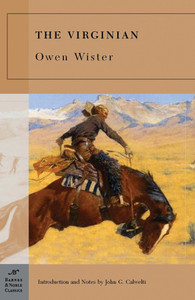Germinal, by Emile Zola, is part of the Barnes & Noble Classics series, which offers quality editions at affordable prices to the student and the general reader, including new scholarship, thoughtful design, and pages of carefully crafted extras. Here are some of the remarkable features of Barnes & Noble Classics:
New introductions commissioned from today's top writers and scholars Biographies of the authors Chronologies of contemporary historical, biographical, and cultural events Footnotes and endnotes Selective discussions of imitations, parodies, poems, books, plays, paintings, operas, statuary, and films inspired by the work Comments by other famous authors Study questions to challenge the reader's viewpoints and expectations Bibliographies for further reading Indices & Glossaries, when appropriateAll editions are beautifully designed and are printed to superior specifications; some include illustrations of historical interest. Barnes & Noble Classics pulls together a constellation of influencesbiographical, historical, and literaryto enrich each reader's understanding of these enduring works.
Émile Zolas unflinchingly told story of a daring coal miners strike in northern France was published in 1885, when the prolific author was at the height of his powers. Today some readers believe this novel will prove to be his most enduring work. Spare yet compassionate, Germinal takes us from the comfortable homes of the bourgeoisie to the dark bowels of the earth, describing unbearable human suffering and exploitation in vivid and unsentimental prose.
Étienne Lantier, a poor but spirited young laborer in search of work, shares the wretched lives of the coal miners of Le Voreux, where the brutish and dangerous working conditions consume the health and prospects of young and old, one generation after another. Impoverished, ill, and hungry, the miners inspire Étienne to attempt a revolt against the Company, an overthrow of the tyranny of capital, which was starving the worker. They answer his desperate call for a strike that grows increasingly violent and divisive, testing loyalties and endangering Étiennes life even as it offers the workers their only hope of a decent existence. In a harrowing climax, the unforeseen consequences of the strike threaten to engulf them all in disaster.
Dominique Jullien is a professor of French at Columbia University and the University of CaliforniaSanta Barbara, and the editor in chief of the Romanic Review. Her books include Proust et ses modèles: Les Mille et une Nuits et les Mémoires de Saint-Simon and Récits du Nouveau Monde: les Voyageurs français en Amérique de Chateaubriand à nos jours. She has published numerous articles on nineteenth- and twentieth-century literature, including several on Émile Zola.







